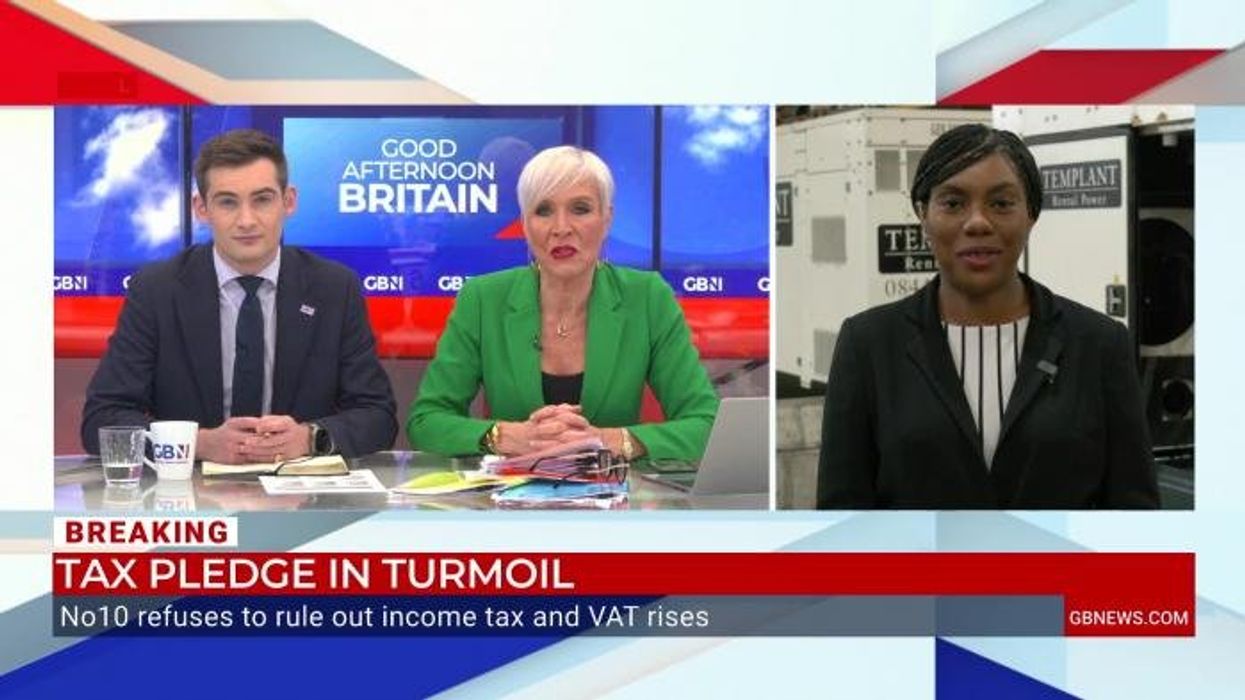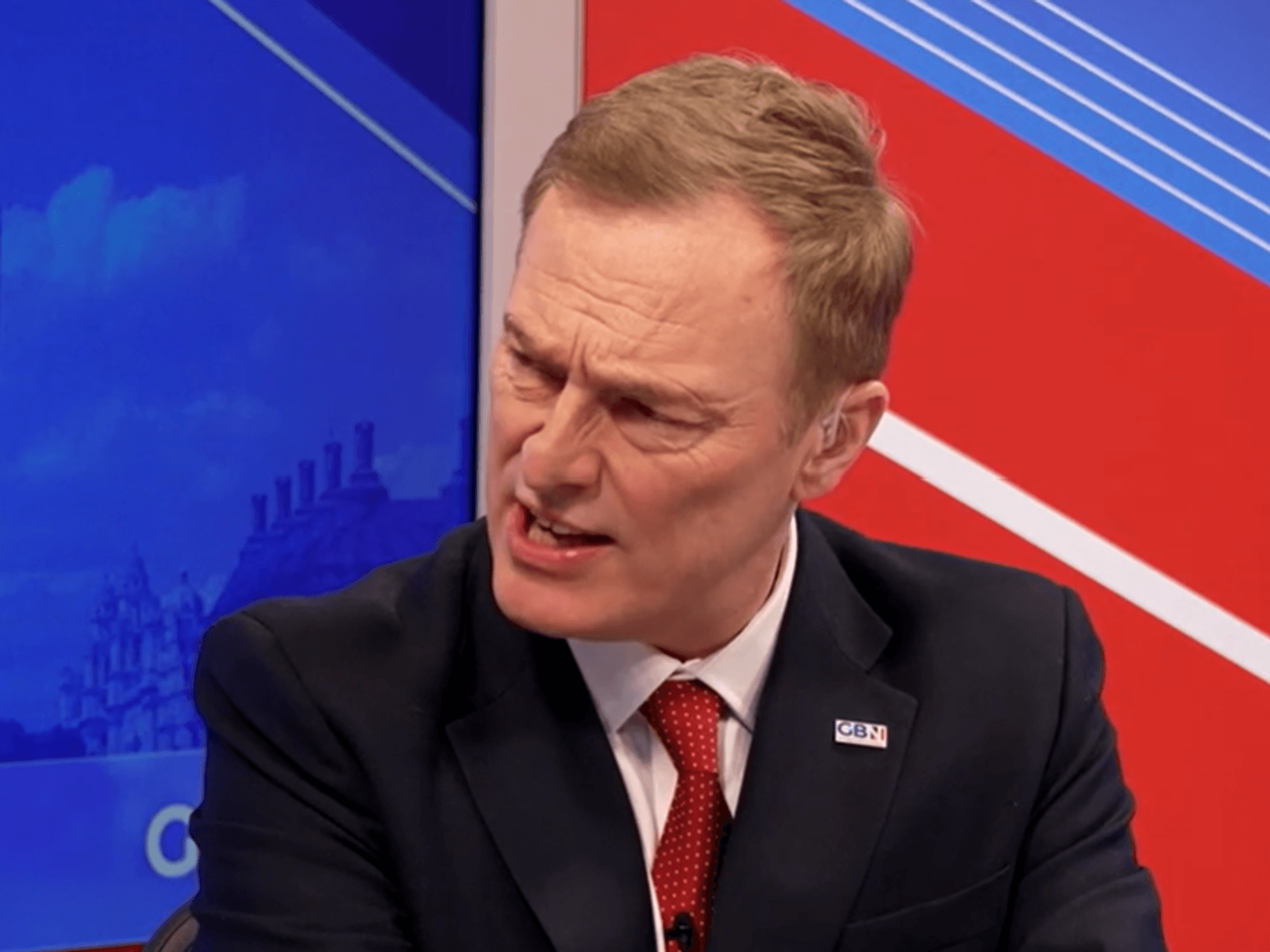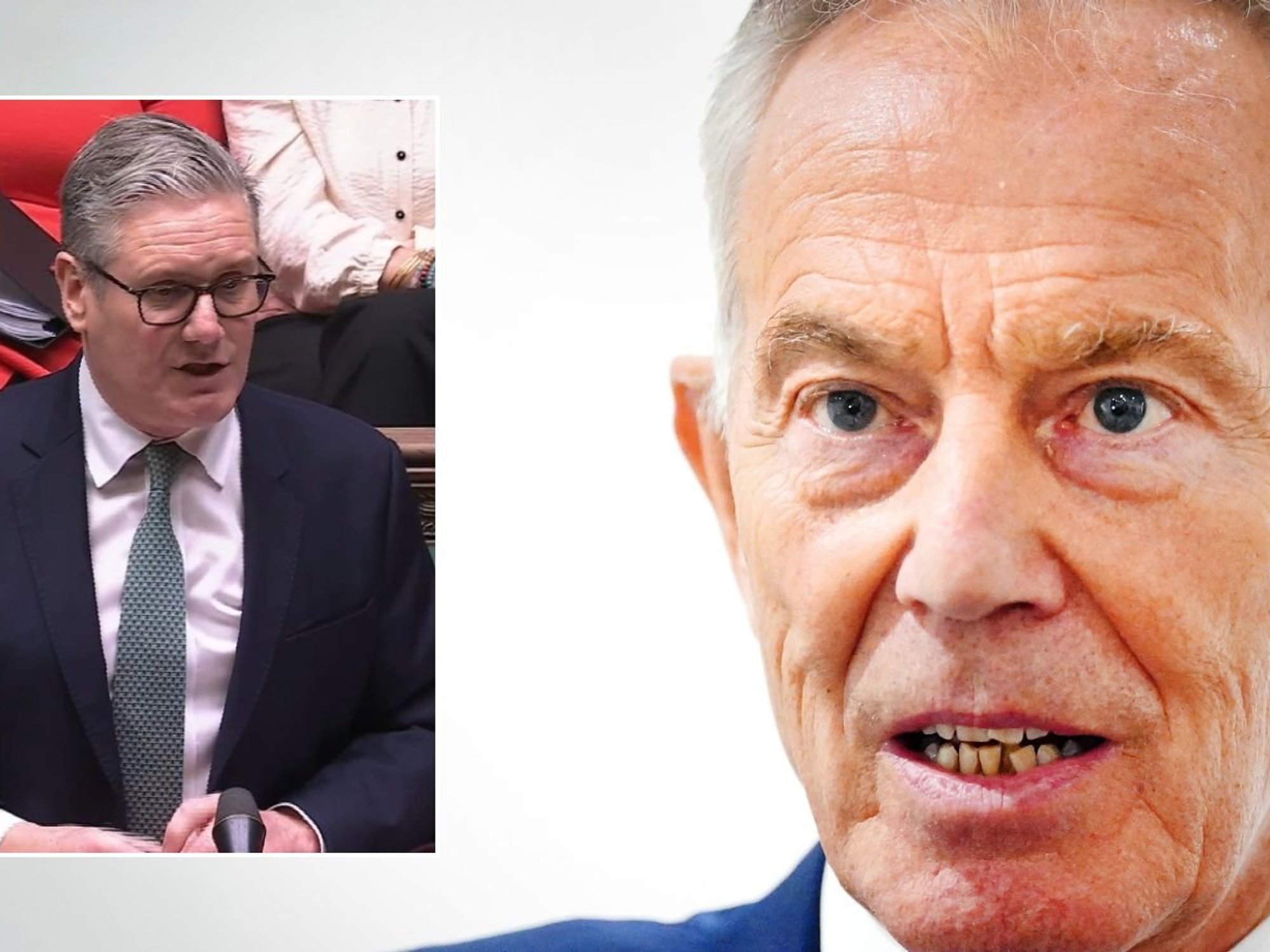Investors lose confidence in Rachel Reeves as economists slam 'chaotic' Labour

Kemi Badenoch slams 'completely irresponsible' Labour government |
GB News

Ten-year gilt yields rose by more than 13 basis points in response to the reports
Don't Miss
Most Read
Latest
British Government borrowing costs surged on Friday after Chancellor Rachel Reeves abandoned plans for income tax increases, prompting the sharpest single-day gilt sell-off since early July.
This has resulted in a loss of confidence in the Chancellor from investors, as she attempts to close the reported £40billion gap in public finances by implementing a stealth tax on Britons.
Experts argue that the falling pound and rising borrowing costs highlight Keir Starmer and Rachel Reeves’s weak grip on their party.
Andrew Wishart, senior UK economist at Berenberg bank, said the decision "demonstrates a lack of political competence which has probably led investors to increase the probability they attach to a change in the leadership of the Labour Party and Government".
TRENDING
Stories
Videos
Your Say
Government officials insisted the move was driven by improved Office for Budget Responsibility (OBR) forecasts rather than internal pressure.
A senior Government official said: "I won't deny politics was a factor. But the changing economics meant that the political argument for breaking the manifesto was weaker."
Mike Riddell, of Fidelity International, said: "What has changed is renewed policy and leadership uncertainty."
John Stopford, head of managed income at Ninety One, said the market reaction reflected scepticism.
 Experts say the pound’s slide and rising borrowing costs expose Starmer and Reeves’s weak party grip, clouding the economic signals investors seek | GETTY
Experts say the pound’s slide and rising borrowing costs expose Starmer and Reeves’s weak party grip, clouding the economic signals investors seek | GETTY"Fundamentally, it does not seem as though Starmer and Reeves have got enough control or power in their party to put through difficult decisions.
"It seems very chaotic."
Ten-year gilt yields rose by more than 13 basis points to around 4.58 per cent, while thirty-year yields reached 5.4 per cent during the session.
Alongside this, Sterling weakened against the dollar, slipping 0.5 per cent to trade near $1.31 as markets reacted to the reversal.
LATEST DEVELOPMENTS:

10 year gilt yield (%)
|LSEG/CoPilot
Francesco Pesole, FX strategist at ING, said: "The gilt rally was being backed by expectations that income tax increases would have delivered the necessary fiscal tightening without stoking up inflation, ultimately allowing the Bank of England to cut rates in December and beyond."
He added: "It's not clear how Reeves plans to fill the fiscal hole without touching income tax."
"The market is likely to be disappointed with a shift back to using a list of smaller tax rises to address the fiscal shortfall, in part because this is viewed as less credible."
Helen Miller, director of the Institute for Fiscal Studies (IFS), said that "the news that Rachel Reeves has backed away from a plan to increase the rates of income tax will lead investors to worry that the Chancellor will instead increase a range of smaller taxes that can be more damaging to economic growth".
She said the move would "lead investors to worry that the Chancellor will instead increase a range of smaller taxes that can be more damaging to economic growth".
Markets reacted swiftly, with Government borrowing costs rising on Friday as gilt investors absorbed the implications of the shift.
Ms Miller suggested the reversal might be seen as evidence "that this Government are reluctant to do politically difficult things," cautioning that such perceptions could push investors to demand higher returns when lending to the state.
A Treasury spokesman said: "We do not comment on speculation around changes to tax outside of fiscal events.
"The Chancellor will deliver a Budget that takes the fair choices to build strong foundations to secure Britain's future.
"We have a plan to bring down borrowing because taxpayer money should be spent on the country’s priorities, not on debt interest.
"According to the IMF, the UK is set to deliver the largest primary deficit reduction in both the G7 and G20 over the next five years".
Our Standards: The GB News Editorial Charter
More From GB News










